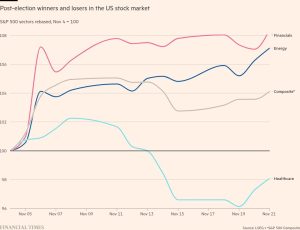EU defence commissioner calls for obligatory ammunition stockpiles
Stay informed with free updates
Simply sign up to the War in Ukraine myFT Digest — delivered directly to your inbox.
The EU’s first defence commissioner wants to force countries to stockpile minimum levels of ammunition and other supplies, saying it is the best way to scale up the bloc’s undersized arms industry to ready it for war.
Andrius Kubilius, who will take the job this year if the European parliament approves, said the EU must prepare for Russian attack within a few years.
He compared his plan to similar arrangements for natural gas, under which countries must keep reserves and share them with neighbours in need.
“Why do we not have some kind of criteria called military security to keep in storage such and such an amount of artillery shells and some other products . . . let’s say powder [explosives]?
“You bring added value to the security of member states but in addition, you are creating permanent demand for production, which is the biggest issue for the defence industry. They lack stable long-term orders for production.”

The EU has tried to boost weapons output after Ukraine was forced to ration shells and missiles in its effort to push back Russian offensives.
Finland, Russia’s neighbour, is one of the few member states with large reserves of weaponry while media reports in Germany in 2022 said its army would run out of ammunition after two days of fighting.
Kubilius said he had no wish to duplicate the role of Nato. Officials at the US-dominated alliance have criticised the EU’s alternative set of equipment standards and procurement efforts.
In March, the EU allocated €500mn under the Act in Support of Ammunition Production (ASAP) to boost output capacity to 2mn shells annually by the end of 2025.
Kubilius, a former Lithuanian prime minister, said that was an improvement on the 300,000 annual limit when Russia attacked Kyiv in 2022. But more is needed, he said. “If I’m correct, we’re still behind the Russians.”
Commission President Ursula von der Leyen has said the bloc needs to spend €500bn to make up the shortfall in defence spending since the end of the cold war in the 1990s.
She has given Kubilius 100 days after taking office to produce a white paper on defence strategy. It should include a European air shield, which would cost hundreds of billions of euros, and a cyber defence system, she said.
Kubilius wants EU member states to borrow the money for this jointly, an idea opposed for now by net budget contributors Germany and the Netherlands.
He will also sketch out other projects of common interest that would be eligible for EU funding, including ways of incentivising defence industry companies to work together across borders.
The tendency of various European governments to favour their own national champions has led to a proliferation of different models of tanks, artillery pieces and fighting vehicles, denting efficiency.
To attract private money, meanwhile, the EU must change investment rules to classify defence spending as sustainable, Kubilius said.
He also said he wanted to work more closely with Ukraine arms manufacturers, as drones and missiles had transformed the modern battlefield. “They have real-world experience,” he said.
Kubilius warned there was no time to lose, citing Germany’s assessment that Russia could be ready to attack an EU member by 2029.
The EU has been scouring the globe to get weapons to send to Ukraine. The Czech Republic is leading an effort to buy 300,000 artillery shells.
Kubilius said EU industry plans could include the UK, which has left the bloc.
“We consider Britain as part of Europe,” he said. “Democratic Europeans should be as united as possible. I see the danger of our weakness . . . and Putin could be tempted to look for some additional adventures.
“But the Chinese are [also] watching. The Chinese will make one simple conclusion. The West is quite weak. Despite the fact the combined Western economic spending power is 25 times stronger than Russian, we are not able to win. What is the reason? It’s a question of political will.”
#defence #commissioner #calls #obligatory #ammunition #stockpiles




